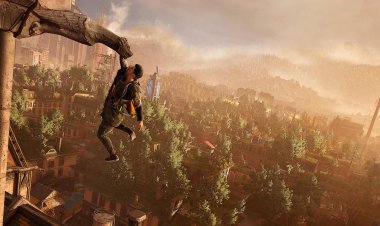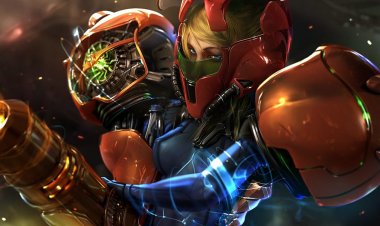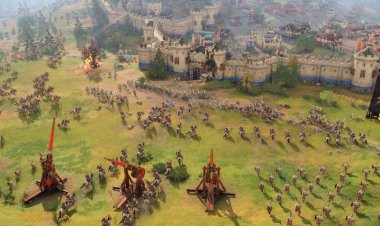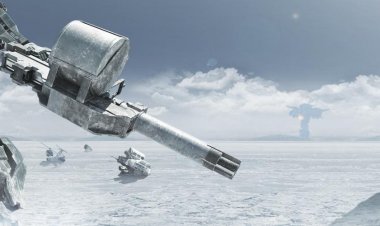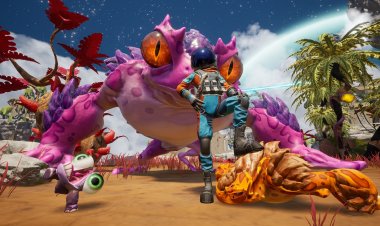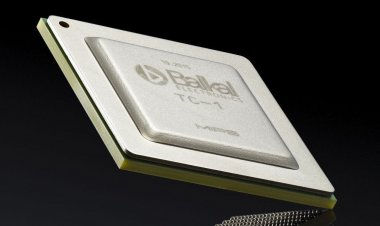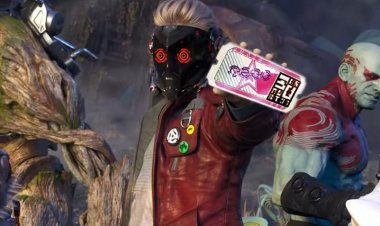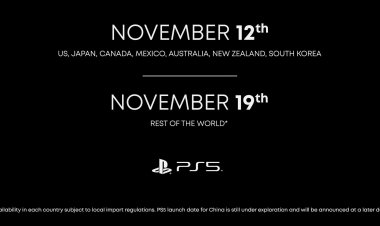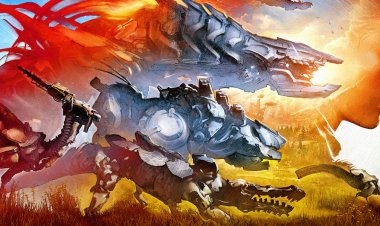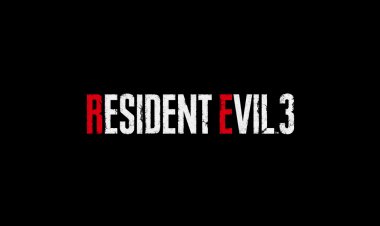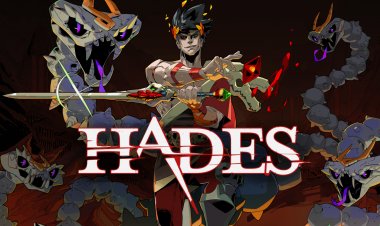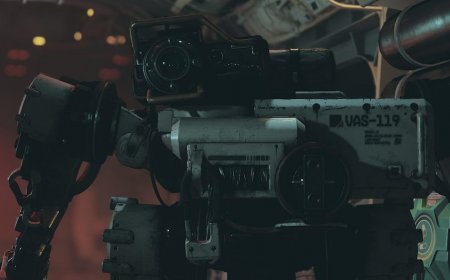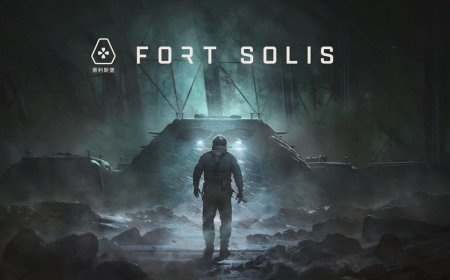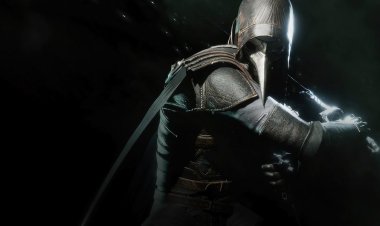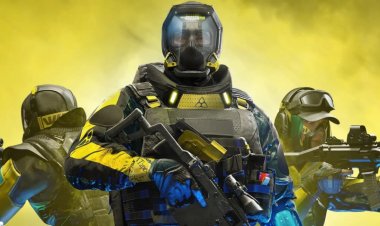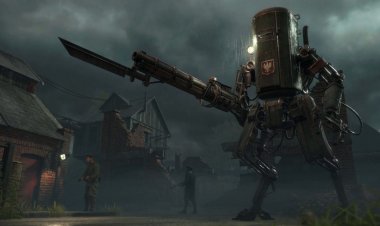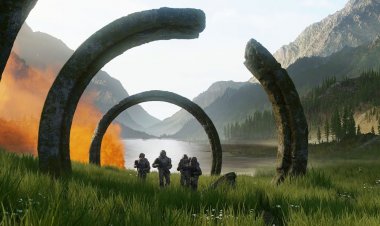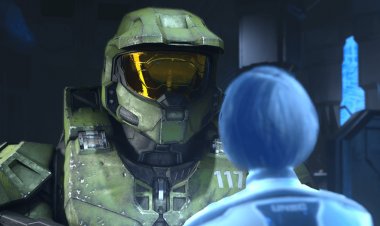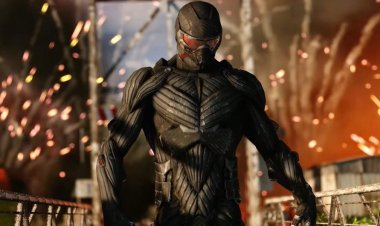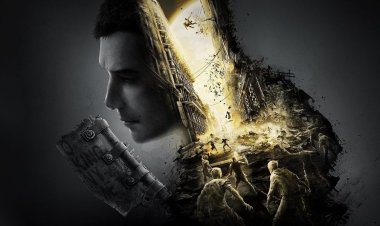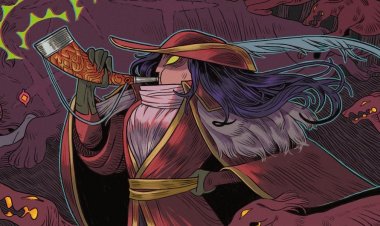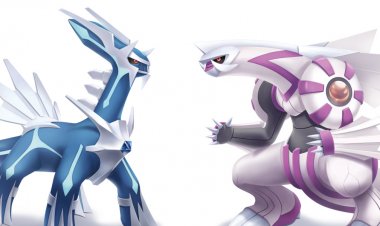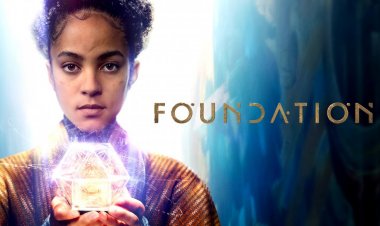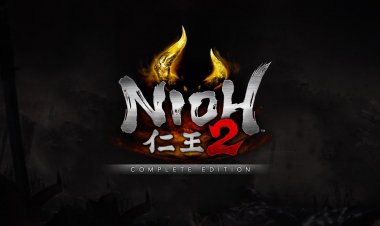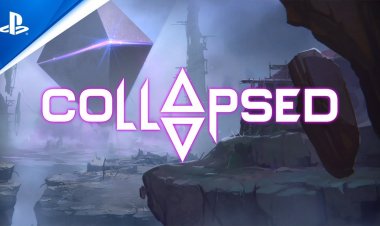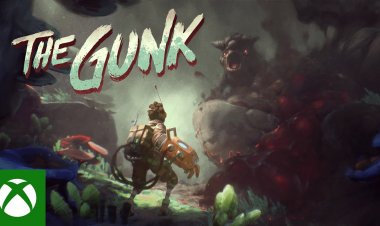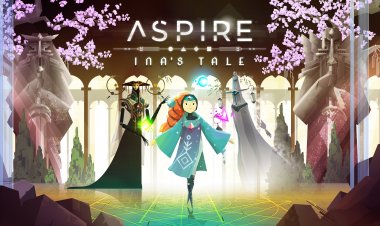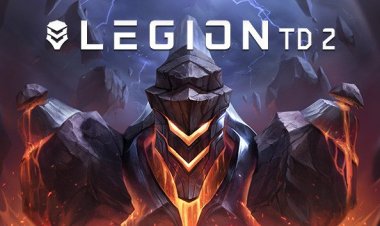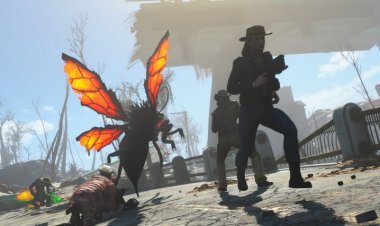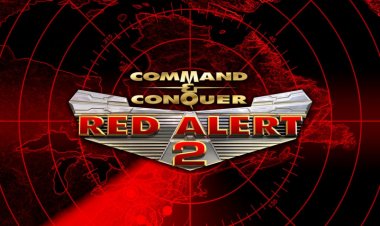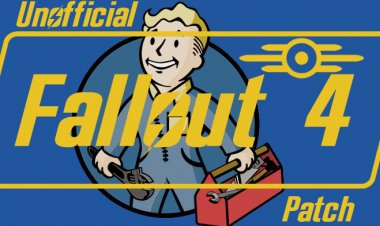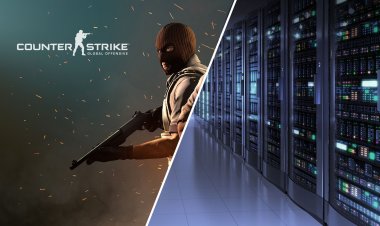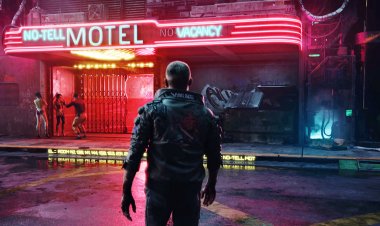Rainbow Six: Extraction - Review
When Ubisoft first introduced Rainbow Six: Extraction (then Quarantine) at E3 2019, public greeted the announcement warmly, we prepared a review of the game.
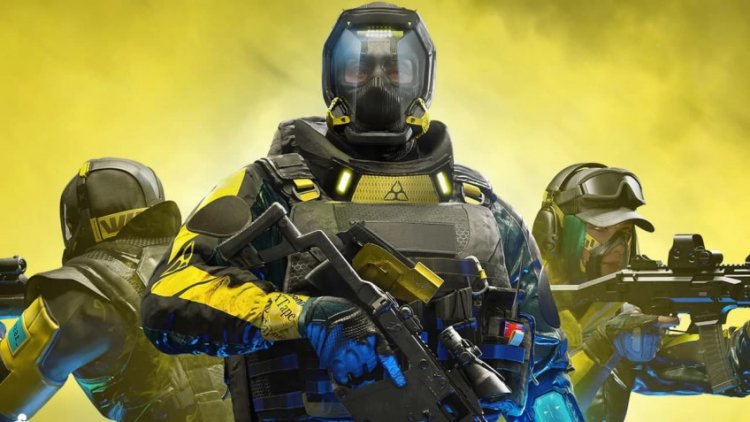
Still, this is a rare case when a major publisher really listened to the wishes of the audience - although here, perhaps, it is impossible to do without a little historical background. In 2018, Operation Chimera was updated for Rainbow Six: Siege, and with it a new Outbreak cooperative mode appeared in the game, where operatives confronted hordes of mutants infected with an alien parasite. Against the background of the tactical near-realism of the basic Siege, a simple, but quite competent zombie shooter looked like a good opportunity to change the situation, but it was only available for a month. Numerous requests to make Outbreak a full-fledged part of the game or at least briefly return the mode to rotation were constantly refused, allegedly for technical reasons.
Now it's clear that it wasn't just about server logistics. Most likely, the studio was originally going to build an independent product based on this idea, so the positive feedback from the players only contributed to the process. The question is: was it worth building it at all? To be honest, after more than 20 hours in Extraction, I can't give any definite answer. The company can hardly be accused of laziness, because all the components of a good cooperative shooter seem to be in place, but now the game is more like a late prototype. Curious, but nothing more. Especially if the publisher asks for money for it.

Dead silence
A year has passed since the incident in New Mexico, where the Rainbow team first encountered an alien threat. The outbreak of the parasite has been suppressed, the situation has been brought under control, the personnel have returned to normal anti-terrorist work - even if some now have nightmares. But the trouble came from nowhere: suddenly similar foci of infection began to appear throughout the United States, and the infection is spreading at a monstrous pace. This time, it will not be possible to get off with feasible help, so the command formed an internal REACT unit and dealt with the problem closely. The organization's volunteers will have to land in infected areas to collect information about mutants, pull survivors out of quarantine zones and clean up the territory before things go too far.
Deep down, we hoped that the developers would take the chance to reveal the characters familiar from Siege a little better, but in vain. The plot (except for the deposits of boring ent) in Extraction feels even less than in the original Outbreak mode, although there the narration was limited to just a couple of CGI videos. There is no single-player campaign, of course, either — only session matches that are not related to each other in any way. Of course, this could have been expected, but it's still a shame: one scene from the original, where a car tried to buy a new machine gun online during a briefing, is remembered more than all the events of the new epidemic combined.


However, there is some good news. Ubisoft has seriously worked on the structure of the gameplay: despite the many mechanics borrowed from the original source, Extraction looks like a more or less full-fledged game, and not just a spin-off created solely by the requests of the audience. First of all, raids into infected territories are arranged in a rather tricky way. The locations where a detachment of three operatives is landing are divided into several separate sectors, and in each sector players need to fulfill a particular goal. To lure a dangerous monster into a trap, rescue a hostage and escort him to the evacuation point, mine the nests of parasites - there are many types of tasks, they are issued randomly. And after completing the mission in one sector, the team can advance to the next through a special gateway or interrupt the landing halfway and return to base, retaining the experience gained as a reward: the game encourages even minimal passage of raids, the main thing is to get out of there at least some alive.

However, in words it is often incomparably easier than in reality, because Extraction is absolutely ruthless. Any, even the smallest mistake on the part of the operatives will definitely be punished. At low difficulty levels, the average raid can be completed without much difficulty, but it is worth stepping at least a little higher, as the gameplay becomes much more dynamic. And it's not at all about the number of opponents and not that they bite painfully — the real danger lies in their habits. Archaea (the same mutants) do not shine with intelligence, but all individuals are united by a collective mind that allows them to exchange information. Monsters patrol the corridors of abandoned buildings and react sensitively to any noise: if one of them notices the victim, the player will have about a second to neutralize the sentry with a couple of well-aimed shots - otherwise he will raise the alarm. All the surrounding mobs will immediately rush to the signal, and incubator nests will begin to give birth to reinforcements and clog everything around with gray slime that slows down operatives. Most archaea are able to knock down even a heavily armored character in no time, so letting an enemy within arm's reach is very harmful to health.

It probably sounds too hopeless from the outside, but in reality Extraction is surprisingly competent at pumping up tension - much more competently than most similar cooperative shooters. It does not put too much pressure on the brain, but it rarely allows the player to feel completely safe and at any moment is ready to accelerate the pace of gameplay to the limit. One stray bullet or a rash step can turn a calm sweep into a complete disaster, where victory is separated from failure in a matter of seconds. Exploding kamikaze archaea demolish destructible walls that could serve as a shelter from the spikes of long-range shooters. Nimble creatures with armored foreheads cover the vulnerable places with their own heads and scatter blinding mines in their path, while elite archaea enter from the flanks, secretly moving inside the slime. In general, the prospect of reeling in the fishing rods early, sacrificing rewards for unfulfilled tasks in the following sectors, sometimes looks extremely tempting.

But even in the most difficult situations, operatives, of course, are far from defenseless. Eighteen characters from Siege moved to Extraction with almost no changes: some (like Doc, Finky or Ruka) were moved by the authors as is, and others were slightly corrected so that their arsenal fit better into the framework of the new gameplay. So, Alibi holograms automatically attract the attention of archaea, explosive charges of the Khibiny penetrate armored enemies, the camouflage of the Vigil suppresses the sight of opponents for lack of surveillance cameras. Lord Tachanka is again wielding an easel machine gun, which for once looks appropriate and significantly helps to beat off the waves of archaea. Characters armed with assault shields flew past (including Fuse), but this can be understood: a significant part of the archaea attacks in melee, and it would be too easy to take their blows on the shield.
And so it goes
Ubisoft really tried to preserve the scope for tactics and improvisation inherent in Siege, but Extraction inexcusably quickly begins to lose its fuse. The mechanics seem to be in place, everything seems to work as it should, but the more time you spend in the game, the harder it is to get rid of the obsession that the authors simply stretched the gameplay core of a tactical shooter to a completely unsuitable format for the genre. When the developers pulled off a similar experiment with the Outbreak mode (which, let me remind you, was by no means a masterpiece), it turned out to be a success, because shooting brainless zombies was optional, and even absolutely free entertainment. An easy release for the stress accumulated in matches against live opponents. But in order for the same formula to function normally within a separate game, it needed to be thoroughly refined, or even completely rethought, and in isolation from the gameplay features of the original source.

Either Ubisoft decided not to delve into such esoteric matters, or the development team simply did not have enough time and resources to bring everything to mind. For a project that supposedly refers to tactical shooters, Extraction actually offers not so much tactics, even if it does not immediately catch the eye.
Of course, the game gives operatives a whole arsenal of various tools with which to do interesting things, but there is no real incentive to go for any tricks. For all their speed and power, the deadly archaea are not distinguished by cunning and always push ahead. They lack abilities or properties for which it would be important to choose the right countermeasure. They do not wait in ambushes, do not prepare traps for the squad and do not try to somehow catch the victims by surprise, which automatically deprives intelligence of any meaning. The most effective tool in any situation is aimed shots at the heads and other vulnerable points. The gadgets of the characters make the task easier, but it is not necessary to use them in fact. The flow of opponents can be controlled by periodically throwing smoke or stun grenades into the crowd, which leave alien predators absolutely helpless.
So, despite the wide variety of combat options, battles suddenly become boring after several successful raids. And passing them secretly, slowly and painfully scouting the way with a drone, gets boring even faster.

Those who still (for some reason) will play Extraction the way she wants, will face another problem: a feverish balance of complexity. Since the game chooses tasks, types of opponents and the starting sector randomly in each landing, it is impossible to confidently predict what exactly awaits the squad and which route to go through. At first glance, it seems that this is even good, because replayability, emergent gameplay and all that, but the AI director seems to be pathologically unable to find the golden mean. Maybe it's just that I'm so lucky, but in my case, all the raids were either offensively easy or absurdly heavy, regardless of the number of players.
Here, as luck would have it. In one raid, a random number generator can unleash crowds of weak archaea and relatively harmless kamikazes on a squad, and in another, their place can be taken by creatures that are more drawn to mini-bosses than to ordinary opponents. If the game suddenly wants to bury operatives, then well-coordinated teamwork and tactics simply won't help.
This is doubly unpleasant, because Extraction severely punishes the death of characters. An operative who has lost all his health can be lifted to his feet a couple of times, the next injury will be fatal. The body of the fallen can be taken out of the sector, dragging it to the evacuation point, but if you leave the disabled person behind, he will be considered missing and disappear from the list of available characters. To unlock the prisoner again, you will have to organize a rescue operation on the same map where you lost him, and then give him time to recover at the base. Such mechanics perfectly fit into the entourage and raises the stakes, but for the loss of each character, the game deducts the earned experience, greatly slowing down the already slow progression. Not to mention the fact that by chance, which directly affects the complexity of raids, you can easily get into a vicious circle (I got into it once): I went to save one character, pulled him out, but lost the active one - and all over again.
We believed that something worthy could come out of Rainbow Six: Extraction. The concept of a tactical zombie shooter sounds attractive, but Ubisoft failed to implement it — at least at the level that would justify the price tag of the game. And although it can not be called absolutely bad, it is also difficult to advise to buy an obviously raw product. However, if you are an ardent fan of Rainbow Six: Siege and are subscribed to the Xbox Game Pass, then why not? It will probably drag on for one or two evenings, and then you can download Deep Rock Galactic. There will be at least a beer in the bar.

Conclusion
Rainbow Six: Extraction could have been a truly great game if the developers had given it enough time and attention, but Ubisoft was clearly in a hurry with the release. Or she just didn't quite understand what she was doing, why and for whom. Fans of Rainbow Six: Siege may get their share of fun, but everyone else is not a fact.
What's Your Reaction?













